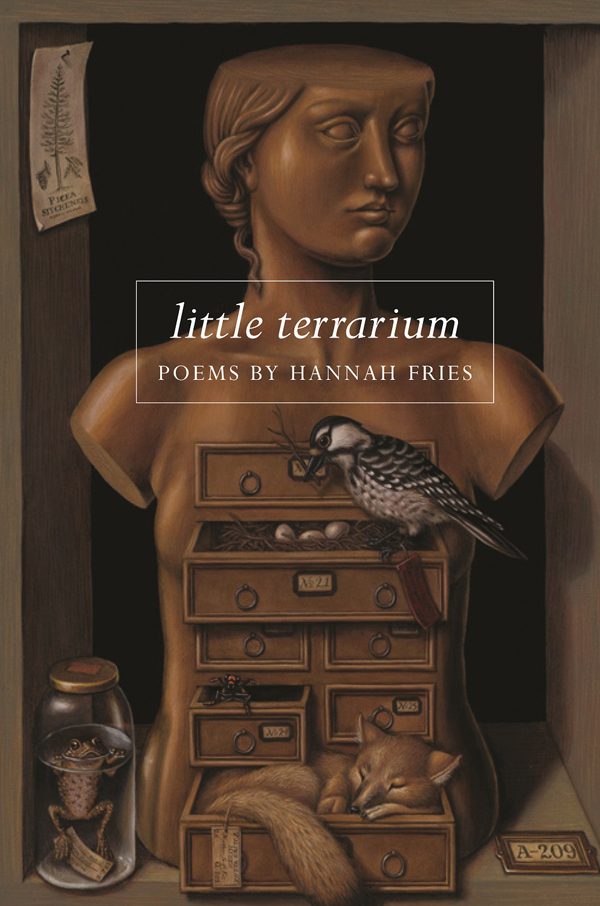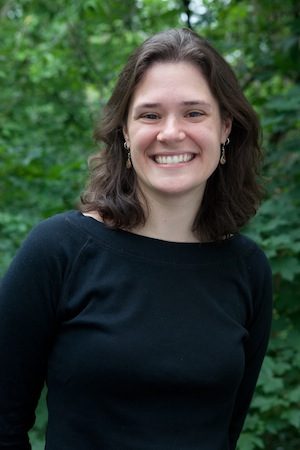 Alum Hannah Fries’ (poetry, ’10) first book of poetry, Little Terrarium, is out now from Hedgerow Books / Levellers Press. Of the book, Maurice Manning wrote: “A mind and a mind’s eye for art are evident on every page of this fine book. Beyond the beautiful, however, these poems also register a sharp regard for the natural world, for our hands-on knowledge of it, and for the plain fact that we are alive at a time when the natural world is most threatened. That is a practical predicament, but it is also a moral reality. To face the practical is a matter of will; to embrace the moral, as this book makes clear, is a matter of love. The love on these pages is human and searching—such is the love we need for art and the love we seek for wisdom.
Alum Hannah Fries’ (poetry, ’10) first book of poetry, Little Terrarium, is out now from Hedgerow Books / Levellers Press. Of the book, Maurice Manning wrote: “A mind and a mind’s eye for art are evident on every page of this fine book. Beyond the beautiful, however, these poems also register a sharp regard for the natural world, for our hands-on knowledge of it, and for the plain fact that we are alive at a time when the natural world is most threatened. That is a practical predicament, but it is also a moral reality. To face the practical is a matter of will; to embrace the moral, as this book makes clear, is a matter of love. The love on these pages is human and searching—such is the love we need for art and the love we seek for wisdom.
Alum Victoria Mlyniec (fiction, ’09) won the 2016 Able Muse Write Prize for Fiction, judged by Stuart Dybek. Here is what Stuart Dybek has to say about Victoria’s winning story: “Passerthrough” is an artfully constructed story that within a few pages switches point of view, employs flashback in order to counterpoint past and present narratives, and introduces three convincing characters.” “Passerthrough” will be published in the Winter 2016 issue of Able Muse, print edition.
Alum Robert Rorke’s (fiction, ’10) story “The Christmas Pyramid” was a finalist in the Boulevard Emerging Writers Fiction Contest
Alum Elisabeth Lewis Corley (poetry, ’10) had poems titled “New Eumenides,” “Full Military Honors, “ and “That Moment When You Want the Radio” published in New Haven Review print edition, July 2016
Alum Scott Challener (poetry, ’08) has three poems in the most recent issue (#9) of Lana Turner Journal: “Snowbound,” “Ghosts and Indices,” and “Route.”
A novel excerpt by alum Christine Fadden (fiction, ’09), which won the Tennessee Williams New Orleans Literary Festival Fiction Prize in 2014, made the Cobalt Review’s 2016 Earl Weaver Baseball Writing Prize finalist’s list: Cobalt Review 2016 Baseball Issue




